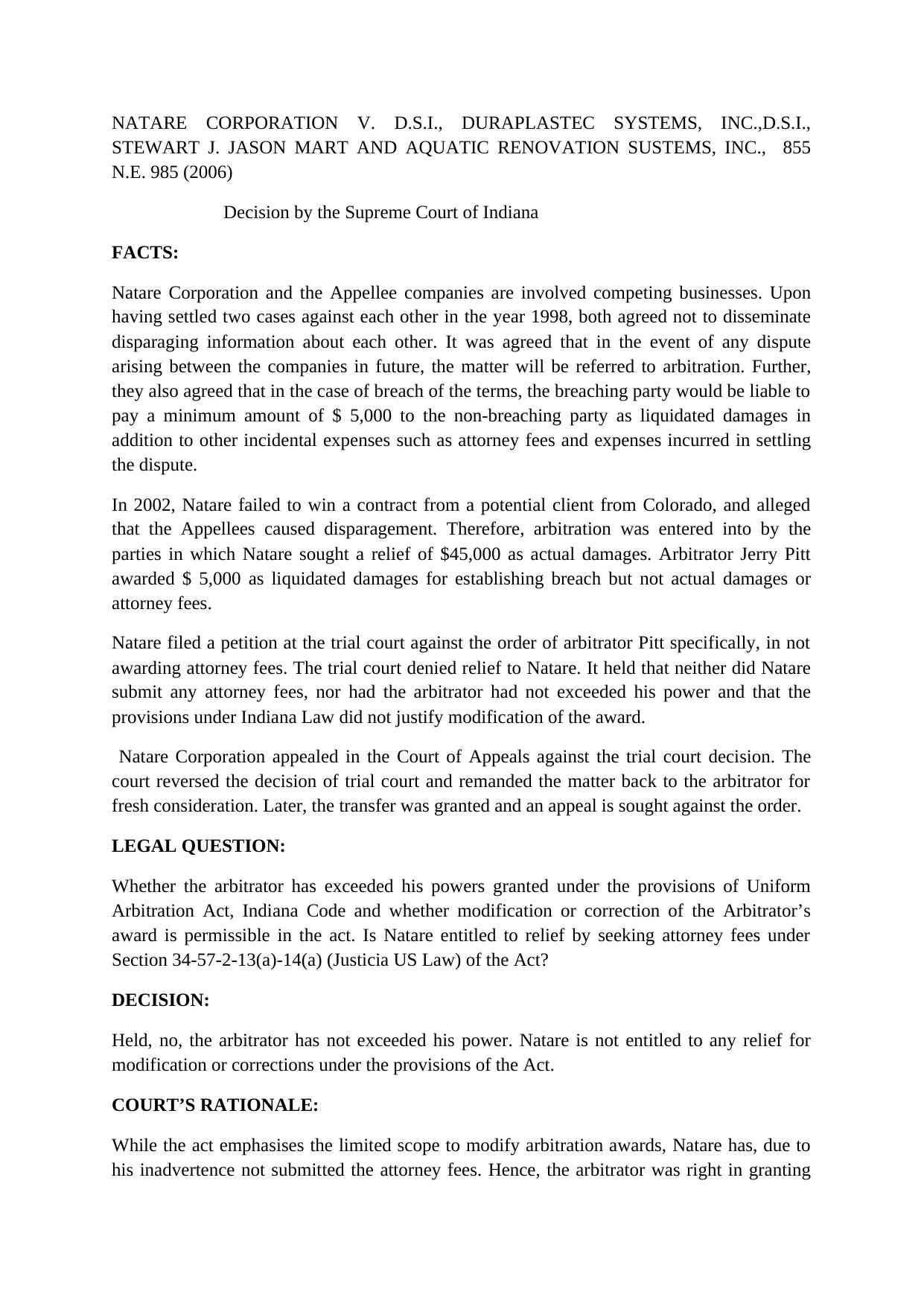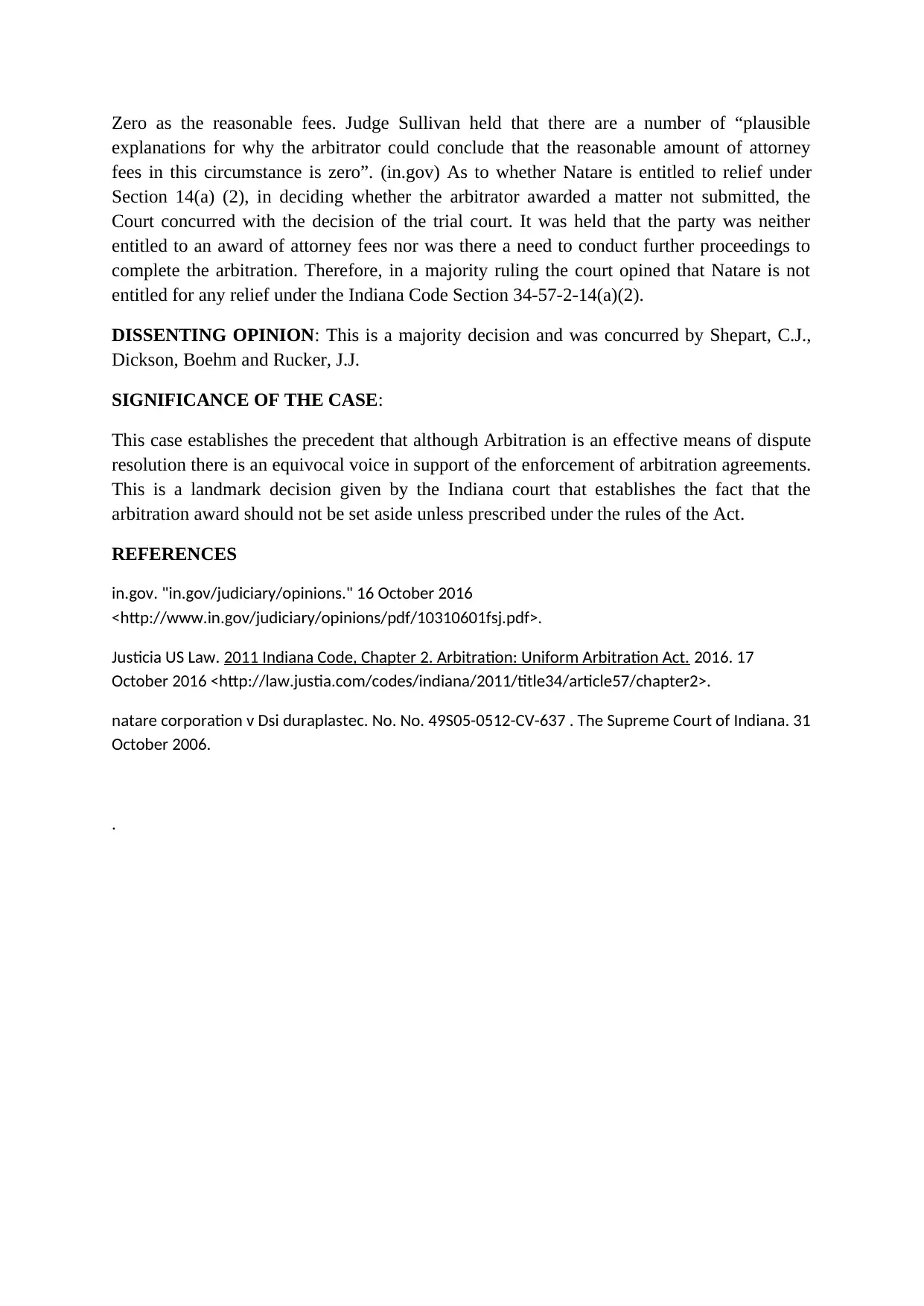Indiana Supreme Court: Natare Corp. v. DSI Case Analysis and Ruling
VerifiedAdded on 2019/09/30
|2
|766
|313
Case Study
AI Summary
This case study analyzes the Indiana Supreme Court's decision in Natare Corporation v. D.S.I., Duraplastec Systems, Inc., Stewart J. Jason Mart, and Aquatic Renovation Systems, Inc. The case involves a dispute between competing businesses, Natare Corporation and the Appellee companies, stemming from a breach of a prior agreement not to disparage each other and to settle future disputes through arbitration. The case focuses on whether the arbitrator exceeded his powers under the Uniform Arbitration Act, particularly regarding attorney fees. The arbitrator awarded liquidated damages but denied attorney fees, leading Natare to challenge the decision. The trial court and the Court of Appeals had differing views. The Supreme Court of Indiana ultimately upheld the arbitrator's decision, finding that the arbitrator did not exceed his powers and that Natare was not entitled to relief under the Indiana Code. The case highlights the importance of arbitration agreements and the limited scope for modifying arbitration awards, establishing a precedent regarding the enforcement of such agreements and the implications of failing to submit attorney fees during arbitration proceedings.
1 out of 2




![[object Object]](/_next/static/media/star-bottom.7253800d.svg)